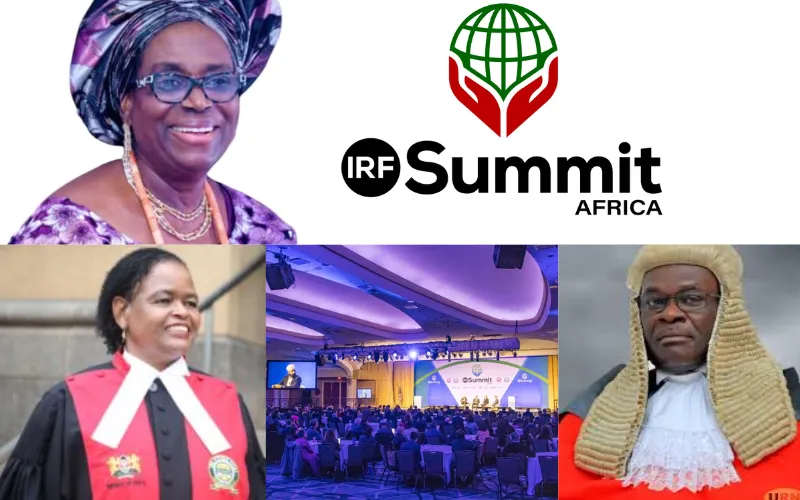Meanwhile, the session title, “Exploring Effective Judicial Innovations in Religious Freedom Conflicts” will seek to engage “Chief Justices and other justice leaders in a cross-cultural exchange” in view to “enhance regional cooperation and promote the development of alternative dispute resolution (ADR) models that are attuned to Africa’s diverse religious and cultural contexts.”
“The involvement of prominent judicial figures provides long-term credibility and institutional ownership to the initiative, laying a foundation for ongoing engagement beyond the forum,” the organizers have explained.
For them, “This panel seeks not only to underscore legal protections and challenges but also to inspire innovative, rights-based solutions that balance religious freedom with national unity and the rule of law.”
In explaining the reason for having Africa as the venue of the IRF Summit, the organizers indicate that the continent is “home to a rich tapestry of cultures, traditions, and spiritual heritage” and thus “stands at a pivotal crossroads.”
“As the world’s fastest-growing population and a region facing complex religious freedom challenges, Africa serves as an essential focus for the global religious freedom movement,” the organizers say about the venue of the Summit, whose principle organizing partners include Pepperdine University and Religious Freedom Institute.
(Story continues below)
“Advancing religious freedom across the continent is vital to promoting peace, stability, and sustainable development worldwide,” they say about the June 17 Nairobi IRF Summit that has the Global Peace Foundation as the in-country organizing (partner).
The IRF Africa Summit, whose Co-Chair is former Nigeria’s First Lady Mrs. Bola Obasanjo, is being realized some six months after the Open Doors International advocacy group released the World Watch List report on Christian persecution on January 15.
The report indicated that 3,100 Christians were killed, and 2,830 Christians kidnapped in Nigeria in 2024. In the same year, Rwanda suffered the most attacks on Christian churches or buildings placing the number at 4,000, the report further indicated.
“How many more killed, displaced, abused, and imprisoned Christians do we need to count before we put religious freedom at the center of public debate?” a CNA report quotes the Director of Open Doors Italy as weighing in on the release of the World Watch List.
He continued, “In 32 years of research, we record a steady increase in anti-Christian persecution in absolute terms. 2024 is again a record year of intolerance: 1 in 7 Christians suffer discrimination or persecution because of their faith: It is crucial to get back to talking about religious freedom in the public debate.”
Meanwhile, a June 2023 report on Religious Freedom that the Pontifical charity foundation, Aid to the Church in Need (ACN), published, indicated that out of the 28 countries where Christians are most persecuted in the world, 13 are African.
The Democratic Republic of Congo (DRC), Nigeria, Mali, Burkina Faso, Niger, Somalia, Eritrea, Libya, are listed in the report as some of the African countries where Christians are persecuted the most in Africa. Others in that category include Mozambique, Cameroon, Chad, and Sudan.
Attendance for the IRF Summit at Safari Park Hotel in Nairobi has been “capped at 200 persons, with online registration limited to 100.”
The registration fee of US$10.00 is to cover “the cost of meals and does not include travel or accommodations,” the organizers have stated, adding that the June 17 event “is open to the press.”
ACI Africa was founded in 2019. We provide free, up-to-the-minute news affecting the Catholic Church in Africa, giving particular emphasis to the words of the Holy Father and happenings of the Holy See, to any person with access to the internet. ACI Africa is proud to offer free access to its news items to Catholic dioceses, parishes, and websites, in order to increase awareness of the activities of the universal Church and to foster a sense of Catholic thought and culture in the life of every Catholic.








